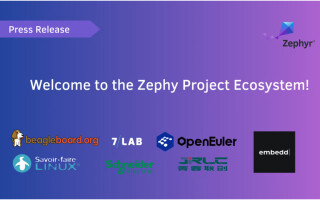Product Showcase: Exein Runtime Handles Threat Detection/Incident Response
March 06, 2023
Sponsored Story

Threats from outside sources are a huge concern to developers, OEMs, and end-system providers. Detecting those threats is one part of the solution. The other part is the incident response. To that end, Exein, a global cybersecurity company specializing in IoT devices, is offering its Exein Runtime, which as its name implies, is a state-of-the-art runtime threat detection and incident response solution (XDR) for Linux- and RTOS-based IoT systems. The below video does a good job explaining how it works.
Exein Runtime lets developers and OEMs monitor and protect their IoT devices from any type of external cybersecurity threat, and also lets them proactively detect and respond to both known and unknown attacks in real time. It is aimed at any vendor needing to protect systems, networks, and data from a broad spectrum of IoT security attacks.
The system is designed around the company’s Pulsar security agent, which is an open-source, eBPF-based kernel observability framework written entirely in Rust — which is quickly becoming the programming language of choice as it enables high performance even in constrained embedded environments.
Exein Runtime is a modern, modular, secure XDR system that offers high performance, low computational cost, and strong security features for IoT and other Edge-based applications. Built on open foundations, the tool is scalable, highly secure, and fast.

The combination of Edge AI-based anomaly detection capabilities and a heuristic policy engine allows Exein Runtime to protect embedded devices from both known and unknown threats. The modularity of the core architecture enables it to run on different hardware profiles, ranging from ultra-low-end devices to smartphones, server environments, and containers, with minimal overhead costs.
This differs from competitive solutions that are typically implemented in C++, a language that is considered unsafe for critical applications. The monolithic nature of competitive solutions could result in significant costs in terms of performance, maintenance, and security. Moreover, by leveraging kernel tracing technologies like eBPF, Exein Runtime can gain more granular visibility into single processes activity, without compromising the safety and stability of the underlying host.
By the end of 2023, forthcoming releases of Exein Runtime will include:
- Support for FreeRTOS
- Project Yocto integration
- Support for RISC-V architecture
- OpenWRT integration
- CAN Bus module release
- ISO 26262 certified version release
- V2 in-kernel advanced threat response module release
- Support for Fuchsia
- Support for Kubernetes
- Integration with Exein Cosmo dynamic analysis
- Exein Runtime x Windows
- Support for Open Policy Agent protocol
To see Exein Runtime in action, stop by the company’s booth at embedded world, booth 4-451.




